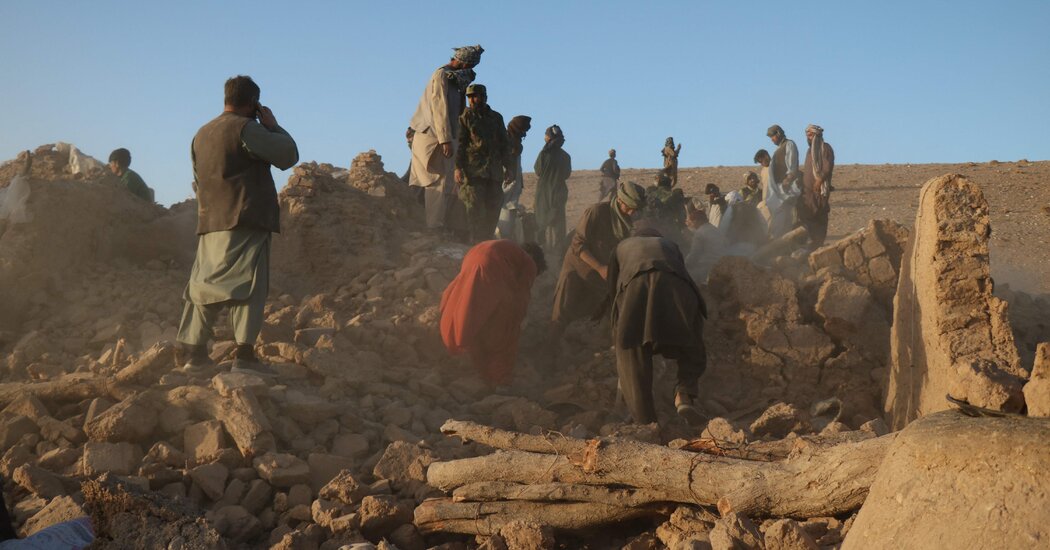
Earthquakes in Afghanistan Kill Nearly 200, Officials Say
Two 6.3-magnitude earthquakes killed nearly 200 people in western Afghanistan on Saturday, officials said, the second major quake to hit the country in less than two years.
At least 180 people were killed and around 600 injured, according to the chief of the regional hospital in Herat Province, where the quake struck hardest. The number of casualties is expected to rise as search and rescue efforts continue, officials said.
The epicenter of the quake was about 25 miles northwest of Herat City, an ancient trading center and cultural hub that borders Iran, according to the United States Geological Survey. At least seven aftershocks followed.
The Taliban administration declared a state of emergency because of the possibility of more aftershocks, said Musa Ashari, the head of the Taliban’s disaster management department for Herat Province. A dozen villages in the Zinda Jan district there had been “completely destroyed,” he said on Saturday, and 600 injured people had been pulled out from the rubble.
The force of the tremors stoked panic in Herat City, residents said. Videos circulating on social media show hundreds of people rushing out their homes and office buildings, fearing they could collapse on top of them.
Abdullah Ansari, 27, was working at a sewing workshop in Herat City on an underground floor when the first quake hit, he said. He and his co-workers ran outside, some barefoot, and he quickly checked if everyone had made it out.
“I called my wife and asked about my sons,” he said, then asked her to leave their home. “There is a big building next to my house and I was worried if it collapses, they might get killed.”
He and his family had dinner in his father-in-law’s yard, and he said that like most people in the area, they planned to sleep outside. Some would be sleeping in parks or on the street, he said, “because people were not feeling safe at their houses.”
.
The World Health Organization dispatched 12 ambulances to hard-hit districts in Herat Province to help evacuate casualties, it said, cautioning that the areas were remote, making rescue operations difficult. Houses in the area are fragile, the organization noted, made of mud and brick.
Nazir Hussaini, 34, was filing paperwork at a tax office in Herat City when the building started shaking. He and others ran outside screaming, then felt another quake about 10 minutes later, he said. Cellphone networks were not working well, making it difficult to get in touch with family members, and after a third tremor hit he eventually made his way back home, as his office and shops had all closed. His neighbors were cooking outside and camping out in the street, he said.
The Taliban administration directed military and service organizations to prioritize the areas hit by the quake, including rescue operations, transporting the injured, preparing homeless shelters and delivering food aid.
“We wish patience and solace for the families of the victims, along with a swift recovery for the injured,” Mullah Abdul Ghani Baradar, the acting deputy prime minister of the Taliban administration, said in a statement on X, formerly Twitter. “Immediate relief efforts are underway to provide essential aid to those in need.”
The earthquakes on Saturday were the latest natural disaster to rattle Afghanistan, which has faced a series of devastating floods and earthquakes in recent years. Those crises have tested the Taliban’s ability to coordinate massive and sustained humanitarian efforts since seizing power in 2021.
The challenge of doing so was put on display in June last year, after a 5.9-magnitude earthquake hit southeastern Afghanistan, killing more than 1,000 people and injuring 1,600 more. The earthquake was the deadliest to hit the country in decades and added to an already dire humanitarian crisis that has engulfed Afghanistan since the Western-backed government collapsed.
